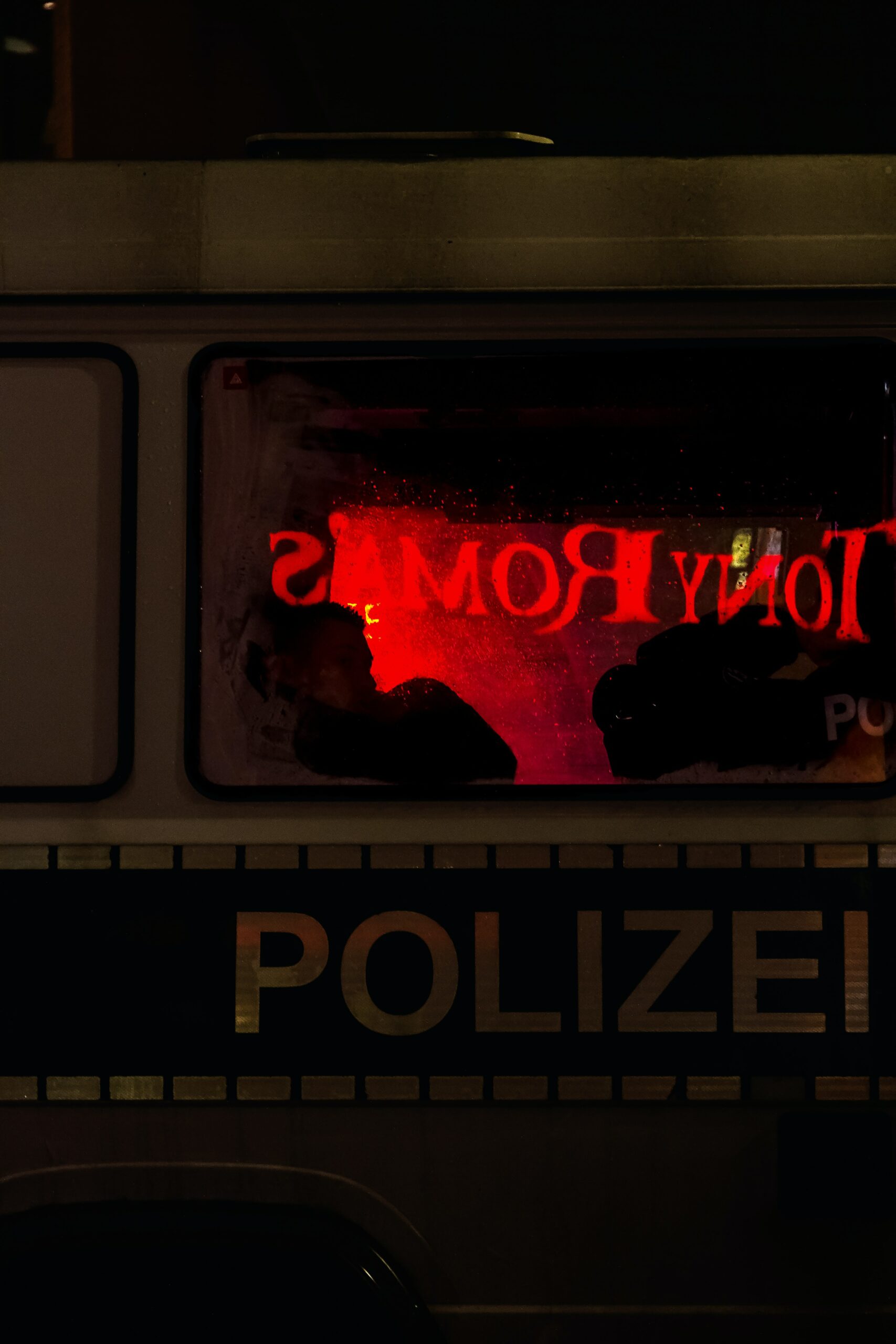06/21/2022, 20:10
4 min reading time
On Twitter, a user complained that his smartphone had been confiscated. He had allegedly marked a post with a like that disparaged killed police officers. The star clarifies whether a "Like" can be punishable.
In the early hours of June 20, police launched a nationwide search targeting the authors of alleged hate speech online. The Attorney General's Office reports: Criminal procedural measures in 15 federal states, 75 suspects found – data carriers such as smartphones, laptops or hard drives seized. The measures are based on investigations that the State Criminal Police Office (LKA) Rhineland-Palatinate had started after the killing of two police officers at the end of January.
At the end of January, two officers, a 24-year-old police officer and her colleague, a 29-year-old chief inspector, were shot dead during a traffic check on a district road in the Palatinate near the district town of Kusel. The investigation into the case is ongoing, while the authorities have targeted hate messages about the deceased.
309 criminally relevant "likes"
A first assessment: The State Center for Combating Extremism and Terrorism (ZeT) examined 767 tips and classified 536 posts as criminally relevant. Overall, this led to 164 preliminary investigations being initiated. What is also surprising is that 309 criminally relevant so-called “likes”, i.e. clicks on the “I like” button, were identified.
A person affected reports to Twitter and shows the letter to the police: Because he allegedly clicked on "I like" under a hate message "made the statement of the original author his own", he had "denigrated the memory of the deceased according to Paragraph 189 Penal Code" made punishable.
1 like = 1 seizure
At the center of this special procedure is a tweet by the user "MulletProof", who on February 4, 2022, tweeted "Minute silence for cops? […] I mourn when innocent people die, not when the killers themselves have to believe it." should have published. The account from which this statement is said to have come is no longer publicly viewable. The accused states that he does not know the account and cannot remember it. In his opinion, the police "found nothing relevant", but confiscated his smartphone. A court date is likely to follow.
Criminal proceedings and a search because of a simple, possibly casual click represents something of a novelty, and is in any case highly unusual in this form of criminal prosecution. Many social media users are currently asking themselves how "dangerous" a like can actually be. The star spoke to the investigating Attorney General Dr. Jürgen Brauer and the lawyer Christian Solmecke about the case.
According to Christian Solmecke, Internet specialist at the Cologne law firm WBS Law, more and more criminal prosecutions of "Like" clicks can be observed. "However, it has not yet been clarified by the highest court whether pure 'liking' can really be punishable. The law itself does not say anything about this, but laws can be interpreted, i.e. interpreted," explains Solmecke. The lawyer continues: "The reasoning behind this is that the 'liker' adopts a punishable comment because he expresses that he agrees with the statement and supports it. As a result, the liking person could be punished as if he had made the statement himself."
A "like" is public approval
When asked why the police took the smartphone away, the legal expert replies: "According to Section 94 of the Code of Criminal Procedure (StPO), objects can be taken into official custody by seizure or confiscation if they can be of importance as evidence. Here are objects such as PC, mobile phone, iPad and Co. are important to secure evidence against the suspects. Thanks to this evidence, among other things, it may later be possible to prove that the suspects were also the perpetrators."
Attorney General Dr. Jürgen Brauer explains to the star: “Not every like is relevant under criminal law. However, criminal liability under Section 140 No. 2 of the Criminal Code (condoning a crime) can be considered if a post that approves and praises the murder of two police officers publicly approves This can also be done by "liking" (thumbs up or similar), because the user adopts the statement, supports the perpetrator and increases the impact of the post."
Investigations continue, criticism from Böhmermann arrived
The particular harshness of the police in pursuing the hate messages about the killed colleagues raises questions for some, since just a few weeks ago a self-experiment by ZDF Magazin Royale revealed that advertisements at numerous police stations in the country came to nothing. Jan Böhmermann and his team showed that reporting hatred on the Internet can be extremely difficult for private individuals and, in the worst case, peter out as soon as you contact the police. In the course of reporting, many districts announced internal investigations to improve the situation.
Both attorney Christian Solmecke and Attorney General Dr. Jürgen Brauer contradict the theory in the social networks that the police only crack down so hard because the hatred is directed against "their own people". hatred, according to Dr. Brauer, always be followed when possible. He also explains: "Because of the special publicity of the murders and the disgusting reactions on the Internet, there was a high level of interest in vigorous and effective criminal prosecution. It was therefore pursued with vigour. The action day was also intended to encourage potential imitators to think/rethink and to deter them from committing criminal offences. In principle, however, all criminal offenses should be vigorously prosecuted. Unfortunately, it is true and regrettable that this is not always possible."
Christian Solmecke also states that "the police in particular have seen themselves exposed to particular hatred in recent years."
Investigations into the hate messages about the deceased officials continue. "We will do everything we can to identify the other authors so that they too can be prosecuted for their statements," said LKA Vice President Achim Füssel in a statement from the Rhineland-Palatinate Ministry of the Interior.



